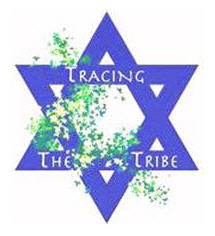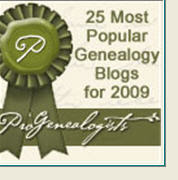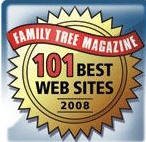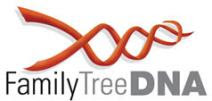Family historians and genealogists are often obsessed about preserving the memories of our ancestral homelands. Many have created websites or webpages dedicated to our ancestors' "home towns."
A good session on just this topic was presented at the recent AJL conference, in Seattle, by Greek-born Amalia Levi of the University of Maryland and the Department of Jewish Studies. Her session focused on reclaiming the Sephardic heartland of Balkan Jews using Web 2.0 and social media.
The Balkans include Yugoslavia, Sarajevo, Salonika, Istanbul and other locations. Jews have been there since the 1492 Expulsion. For many locations, only memory is left. Moving borders, wars and natural disasters destroyed much. In just one example, the pre-war Greek Jewish community numbered some 100,000; post-war, 7,000.
The great 1917 fire in Salonika burned 32% of archives, 16 of 23 synagogues, and most printing houses. In Sarajevo, the Oriental Institute lost some 500 manuscripts during the 1992 war.
Thus, the heartland is mostly in memory only as the Jewish community in those places dies out. Archival materials have been disbursed to Israel, North America, Latin America, Europe or held in private hands.
Of course, another problem is the diversity of languages and alphabets in which these records were compiled. At one point they were in Ladino in Hebrew alphabet, then Ladino in Roman alphabet and today in secular languages.
Says Amalia, there is an "urgency" to re-invent these archives. Researchers need to be pro-active and search for materials, to look for them. They must raise awareness of the problems and also educate what she calls "citizen archivists." [TTT: The Jewish genealogy community has many dedicated individuals who are certainly eligible for that designation!]
Technology represents a collaboration of governments and professionals, to promote searchability beyond written texts, and to seek out and generate contributions. Researchers must consider their communities in terms of lifestyle, oral history, and artifacts and to recreate community histories, after the fact.
The web offers an alternative to geographical history, encourages interdependence and identity, while online digital projects, Amalia said, help researchers to "know it, remember it, and want to present it."
A number of examples were demonstrated. Tracing the Tribe was happy to see Amalia use Steve Lasky's wonderful cyberspace Museum of Family History, well-known by many Jewish genealogists, as one of her first examples. She especially pointed out his Yiddish World exhibit.
She also mentioned sites for the Turkish State Archives, AKA Kurdistan and the extensive Library of Congress online collections.
Web 2.0 projects can use social media to raise awareness beyond specific borders. It can present history, provide historical and genealogical content, encourage new identity, offer cultural and linguistic diversity, bear witness and resist political pressure.
Online archives enable participation, enhance accessibility, are fluid and not only physical, offer a space for user-generated content and more. The online site provides place, platform, people and content.
With active "citizen archivists," says Amalia, there are benefits. Although much history has been lost, lay people can contribute knowledge and memories. It is also a solution to natural disasters or the impact of political regimes.
Other issues were discussed: Whose voice is represented in an online archive? What is online today? In the future, how will we handle accessibility, integration, definition and legibility?
Other Web 2.0 issues include the digital presence, logistics, privacy issues, sensitivity to cultural norms. When dealing with records, the researcher must understand the record components. She said the questions to be asked concern whether the item is a record, what's the evidence, is it authentic, is it appropriate? The digital divide, keeping users interested in contributing, linguistic issues and sustainability were also on her agenda.
There was considerable food for thought in this program.
A good session on just this topic was presented at the recent AJL conference, in Seattle, by Greek-born Amalia Levi of the University of Maryland and the Department of Jewish Studies. Her session focused on reclaiming the Sephardic heartland of Balkan Jews using Web 2.0 and social media.
The Balkans include Yugoslavia, Sarajevo, Salonika, Istanbul and other locations. Jews have been there since the 1492 Expulsion. For many locations, only memory is left. Moving borders, wars and natural disasters destroyed much. In just one example, the pre-war Greek Jewish community numbered some 100,000; post-war, 7,000.
The great 1917 fire in Salonika burned 32% of archives, 16 of 23 synagogues, and most printing houses. In Sarajevo, the Oriental Institute lost some 500 manuscripts during the 1992 war.
Thus, the heartland is mostly in memory only as the Jewish community in those places dies out. Archival materials have been disbursed to Israel, North America, Latin America, Europe or held in private hands.
Of course, another problem is the diversity of languages and alphabets in which these records were compiled. At one point they were in Ladino in Hebrew alphabet, then Ladino in Roman alphabet and today in secular languages.
Says Amalia, there is an "urgency" to re-invent these archives. Researchers need to be pro-active and search for materials, to look for them. They must raise awareness of the problems and also educate what she calls "citizen archivists." [TTT: The Jewish genealogy community has many dedicated individuals who are certainly eligible for that designation!]
Technology represents a collaboration of governments and professionals, to promote searchability beyond written texts, and to seek out and generate contributions. Researchers must consider their communities in terms of lifestyle, oral history, and artifacts and to recreate community histories, after the fact.
The web offers an alternative to geographical history, encourages interdependence and identity, while online digital projects, Amalia said, help researchers to "know it, remember it, and want to present it."
A number of examples were demonstrated. Tracing the Tribe was happy to see Amalia use Steve Lasky's wonderful cyberspace Museum of Family History, well-known by many Jewish genealogists, as one of her first examples. She especially pointed out his Yiddish World exhibit.
She also mentioned sites for the Turkish State Archives, AKA Kurdistan and the extensive Library of Congress online collections.
Web 2.0 projects can use social media to raise awareness beyond specific borders. It can present history, provide historical and genealogical content, encourage new identity, offer cultural and linguistic diversity, bear witness and resist political pressure.
Online archives enable participation, enhance accessibility, are fluid and not only physical, offer a space for user-generated content and more. The online site provides place, platform, people and content.
With active "citizen archivists," says Amalia, there are benefits. Although much history has been lost, lay people can contribute knowledge and memories. It is also a solution to natural disasters or the impact of political regimes.
Other issues were discussed: Whose voice is represented in an online archive? What is online today? In the future, how will we handle accessibility, integration, definition and legibility?
Other Web 2.0 issues include the digital presence, logistics, privacy issues, sensitivity to cultural norms. When dealing with records, the researcher must understand the record components. She said the questions to be asked concern whether the item is a record, what's the evidence, is it authentic, is it appropriate? The digital divide, keeping users interested in contributing, linguistic issues and sustainability were also on her agenda.
There was considerable food for thought in this program.
[TTT recommends that the JGS of Greater Washington, host of the 31st IAJGS International Conference on Jewish Genealogy (DC 2011) should consider the well-spoken, animated Amalia Levi to present at next August's conference.]





































Hi - liked your blog entry (always read you by the way, and look forward to your postings). I am including a link to this entry on http://HellenicGenealogyGeek.blogspot.com and also on my Hellenic Genealogy Geek Facebook page. Thanks.
ReplyDelete